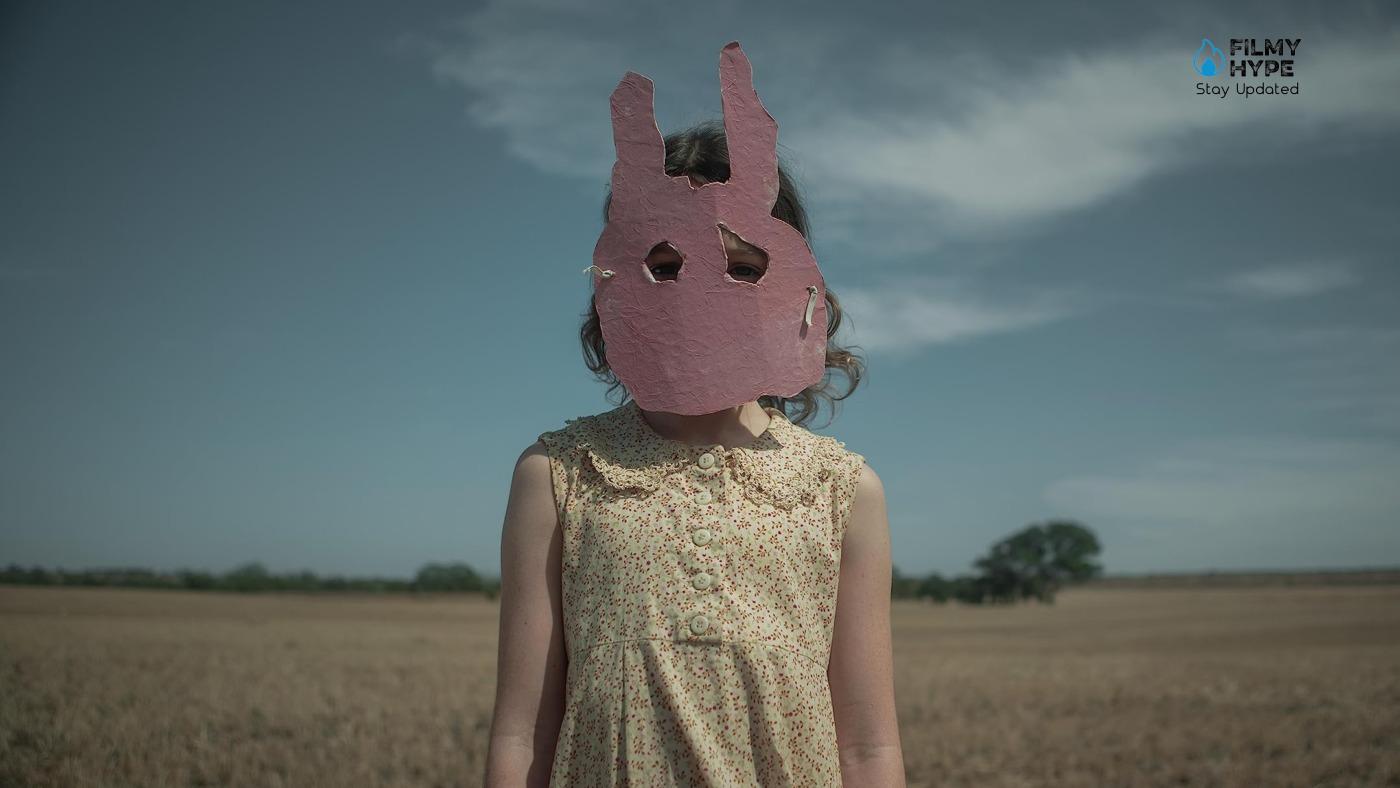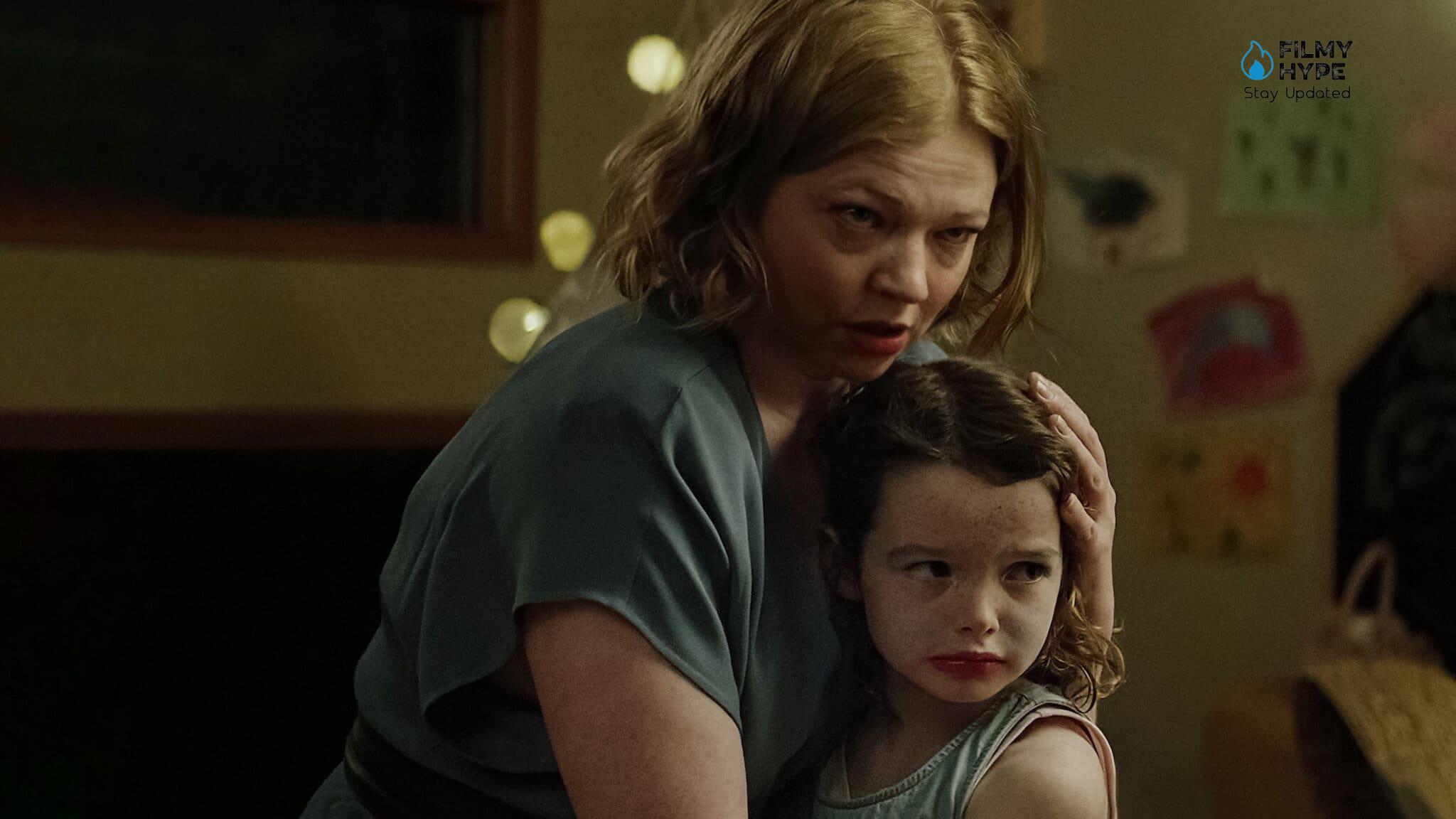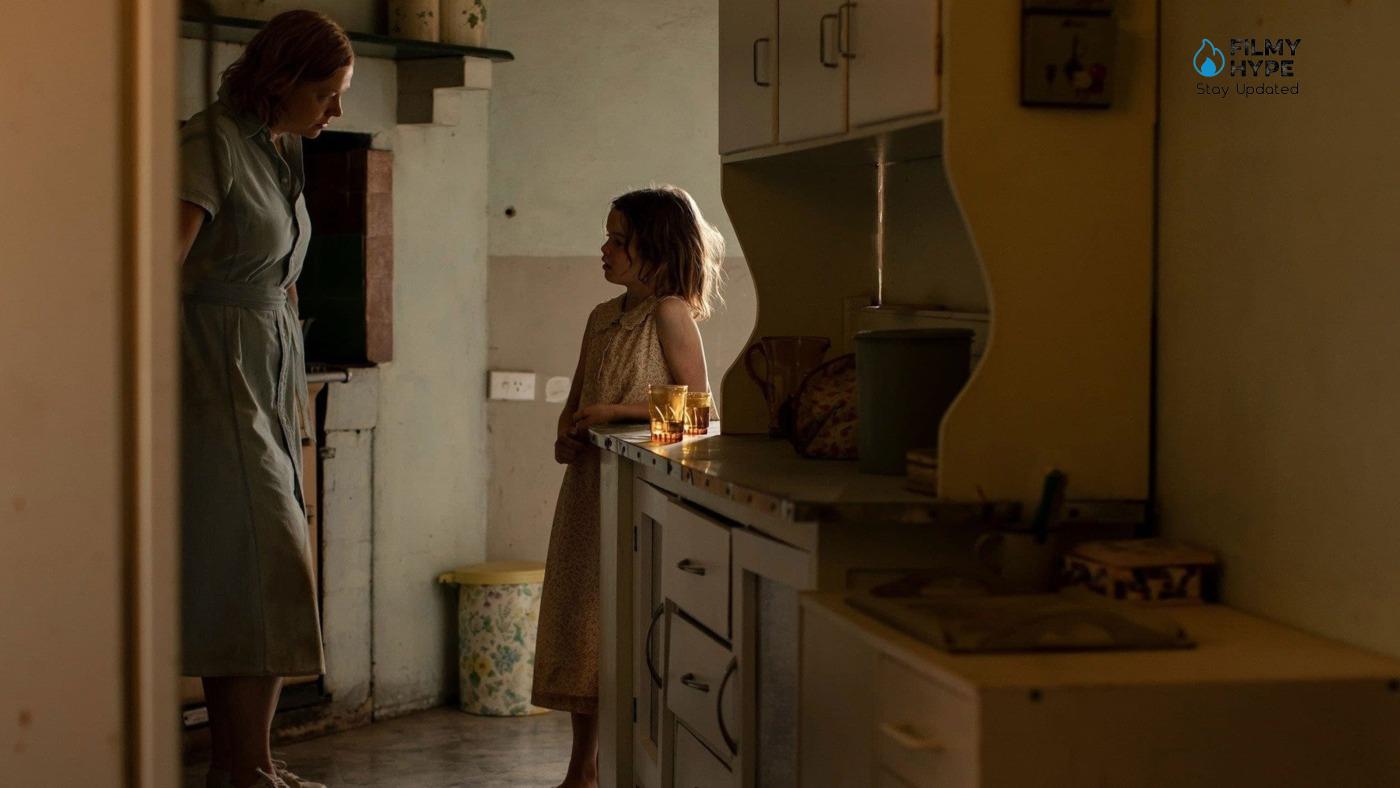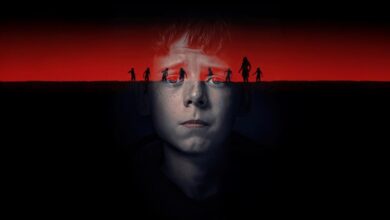Run Rabbit Run Review: The Power of Mourning Guilt, Fear and Disturbing And Highly Symbolic Atmospheres
Cast: Sarah Snook, Lily LaTorre
Director: Daina Reid
Streaming Platform: Netflix
Filmyhype.com Ratings: 3.5/5 (three and a half stars)
Sometimes, even if a film doesn’t quite fit our genre, you have to give credit where credit is due. Or to Run Rabbit Run what is from Run Rabbit Run. The film is directed by Daina Reid and written by Hannah Kent, produced by Sarah Shaw and Anna McLeish, and is available on Netflix starting June 28th. Among the executive producers, there is also Sarah Snook, its absolute protagonist and beloved face of Succession. Run Rabbit Run is also a Carver Films production, with major investments from XYZ Films and Screen Australia. The mother-child relationship is one of the most used cues, both among the classics and in more recent cinema, in the horror genre. The extremes of the love that a mother feels for her children can lead to unexpectedly terrifying situations, in which both the adult and the child can transform themselves into horrific versions of themselves. Let’s think for example of hits like Carrie, Rosemary’s Baby, Hereditary, Relic, or Babadook.

Precisely these last two titles take place in Australia where Daina Reid’s new film, Run Rabbit Run, is set, which becomes the ideal location for terrifying stories about motherhood, between sunny landscapes and characters who even in their best moments seem always a little crazy. The most unexpectedly crazy character in this story is the protagonist Sarah, played by an always splendid Sarah Snook, a mother who is forced to confront some terrible secrets from her past to save her relationship with her daughter. As we will see in this review of Run Rabbit Run, it is precisely the atmospheric locations and Snook’s interpretation that support the film, making it particularly intriguing in its first part: the plot, however, is all too predictable and, if we keep in mind the horror mentioned above, definitely tastes like “already seen”.
Run Rabbit Run Review: The Story Plot
Sarah (Sarah Snook) is a doctor who raises little Mia (Lily LaTorre) with the help of her ex-husband. However, things for the woman have not been going well lately, Sarah is facing mourning for the recent death of her father, who has also left her with the responsibility of her mother, relegated to a nursing home. The relationship between the two has deteriorated over the years, since the disappearance of the woman’s younger sister, Alice. When on the occasion of her seventh birthday – which is exactly the age Alice was when she was last seen – Mia begins to talk about her grandmother as if she knew her, even if she has never seen her, and to identify increasingly with her aunt missing, Sarah is reluctantly forced to face the painful memories of her past. What happened to Alice? Whose rabbit is it that appeared one day in front of the woman’s house? Why is Mia acting so strange?
Run Rabbit Run, even before being a horror film, is a family drama that focuses on the theme of childhood trauma and its reworking in adulthood, as well as motherhood and the mother-daughter relationship. The film tells the story of Sarah, played by Sarah Snook, a divorced and recently fatherless fertility doctor who lives a quiet life keeping away from her mother, hospitalized in a psychiatric hospital, with her daughter, little Mia (Lily LaTorre), almost seven years old. It is precisely when the latter’s birthday arrives that they begin to change radically: since mother and daughter find a white rabbit on the doorstep that Mia decides to adopt and which bites Sarah, the relationship between the two begins to change dramatically: as ghosts from her mother’s past begin to creep in threatening to compromise her sanity, the little girl begins to lose herself to become an ever more sinister presence.

A single woman who has to deal with the disturbing change taking place in her son, a dark presence that hovers over the lives of the protagonists, and the theme of past trauma that re-emerges in the most everyday and familiar contexts in a deep spiral of uncanny: topoi narratives that have often been at the center of the narrative of many psychological horrors of recent years, one of all Babadook, Australian film written and directed by Jennifer Kent and winner of several awards in the independent circuit or the acclaimed Netflix series The Haunting of Hill House. We are talking about a film that does not particularly shine for its starting points and that to the most avid fans of the horror genre may seem used and abused, but which, let’s not hide it, still manages to create around itself that aura of charm and intrigue capable of capturing the attention of the viewer. Slowly building the tension, the environments involved and the characterization of its protagonist, the film manages to restore that sense of expectation typical of horror and psychological thrillers capable of keeping us on our toes to find out how the situation will evolve (or precipitate).
More than the screenplay by Hannah Kent, the merit of this goes to the actress Sarah Snook who, in her interpretation of the increasingly restless and at times neurotic protagonist, manages to put us in her shoes in a credible way, as does the very young interpreter of Mia, capable of restoring the dual nature of her character with great realism. Even the direction, for its part, does its discreet duty: although it does not shine with particularly innovative artistic findings, it does lead us to dwell on details and symbols useful for carrying forward a narration played on joints which, little by little with the progress of the story, they reveal unspoken truths and never resolved traumas that come back to haunt the protagonist. Sarah is not, on the other hand, a heroine, a model woman: she is a fragile figure who bends over on herself, a victim of her sins and of the faults she has committed. She is a mother, daughter, and sister who can’t come to terms with her past and for this very reason, she risks losing her mind, along with everything she has in her.
Run Rabbit Run Review and Analysis
As we anticipated, the atmosphere of Run Rabbit Run is immediately striking, supported by the perfect locations in which the film is set. From the cold, windy town where Sarah and Mia live, to the dirty, sun-scorched property where she grew up with her parents (and her missing sister). Australia, with its intrinsically abrupt and wild charm, proves to be the ideal place to stage a terrible and brutal horror like the one we find in Reid’s film, and for this alone, it is worth letting yourself be carried away by this story. If we focus more purely on the plot, however, some sore points come to light: the plot is not as fascinating as it might initially seem, the turns are all too predictable, and even the ending has little surprise and unexpected. The horror fan will recognize situations and tricks that have undoubtedly already been seen, the neophyte, on the other hand, could be a little disappointed by the lack of narrative flashes and truly scary moments. As a mostly atmospheric horror film, Run Rabbit Run makes absolutely no use of jump scares.
This is not exactly negative, but in a rather obvious context like that of this story, it ends up highlighting even more the flatness of the development. To lift everything, however, the interpretations of Sarah Snook and the very young Lily LaTorre, bring a disturbing and ambiguous Mia to the stage. The Succession veteran gives life to an extremely multifaceted protagonist, who passes – always remaining credible – from opposite states of mind, from pure terror to angry ferocity, from apathetic detachment to the most absolute love for her little girl. Together Snook and LaTorre (in addition to the aforementioned good use of locations and atmospheres), make the film intriguing enough to capture the viewer, allowing him to overlook the defects that we have highlighted while enjoying the vision.
Between symbolism, hallucination, and nightmare, Run Rabbit Run is a psychological horror story where it is not monsters that are scary, but the soul of the characters involved, a story that focuses more on disturbing than on fully frightening, playing slowly with our expectations but that has rarely succeeded in shocking or shaking us thanks to its script except on a couple of occasions. However, due to a narrative that, especially in its central phase, proves to be somewhat repetitive, the film struggles to fully take off. During the second act, many of the sequences seen do nothing but repeat themselves with small variations that make little contribution to the narrative. On the other hand, it remains undeniable that, although easily guessed by an experienced audience, the implications revealed in the finale regarding the fate of various characters still manage to have their effect.

Thanks not only to a scenography that alternates small and closed, almost claustrophobic spaces with others so boundless and desert-like (typical of Australia) that we feel small and insignificant but also thanks to a photograph that takes away the color to make us identify with the anguish of the story. But all this is not enough: the construction of the tension that is distributed throughout the film never manages to reach the climax, an apex that consequently leads to a catharsis that restores the sense of the whole narration, so much so that the film closes ambiguously and subject to multiple interpretations, as well as having little impact on the starting premises.
Run Rabbit Run Review: The Last Words
Playing with stylistic elements and clichés typical of the genre it belongs to, such as the disturbing presence of a child, grotesque masks, as well as that of phantasmatic trauma, Run Rabbit Run is a film that certainly fails to be particularly memorable or original, but which, at the on the contrary, it seems particularly derivative. Flowing without particular obstacles but with a rhythm that is sometimes too slow and without particular flashes, Run Rabbit Run tries to focus on important issues such as motherhood and trauma without however being able to give its point of view on the matter if not in a superficial way. In short, a film that could please casual viewers with little horror experience more than fans of the genre, but which remains enjoyable in its way thanks to excellent actor performances and disturbing and highly symbolic atmospheres.







